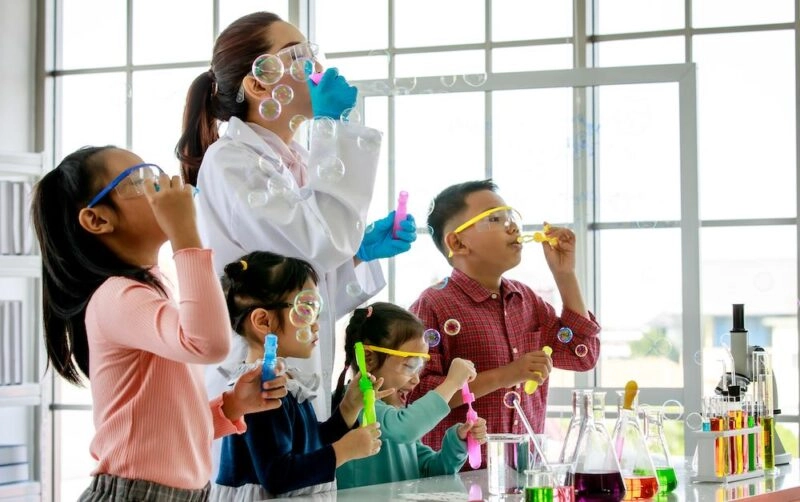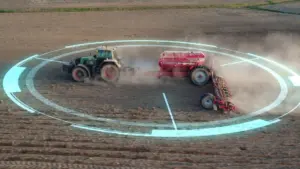The Importance of Teaching Science
Do you remember a favorite Science teacher or Science class you had in high school or college? I have fond memories of different teachers who taught Science in a fun, witty, and engaging manner.
Watching some of the most comedic educators perform science experiments in school was quite often the highlight of my day during my young learning years.
From learning about the moon’s phases to the movement of plate tectonics—Science should be an essential part of every curriculum. One of the most significant benefits of learning Science is that you can and will always continue to learn more —because you can find Science in your own backyard, in your home, and everywhere throughout the world. Science is fascinating because it helps humanity see things from different perspectives, solves critical problems, creates open-minded debate and collaboration, and provides us with growing knowledge and opportunities.
What is Science?
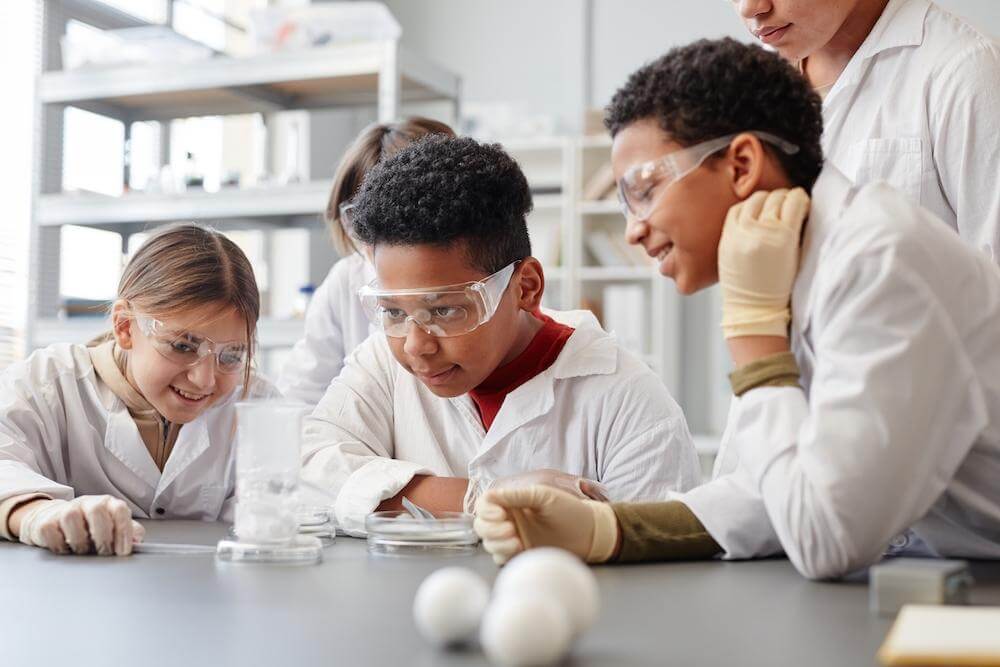
The definition of Science is the systematic study of the structure and behavior of the physical, social, and natural worlds through observation and experimentation. Science is an essential key to innovation and human advancement.
According to The Science Council, they describe Science as the following:
Science is the pursuit and application of knowledge and understanding of the natural and social world following a systematic methodology based on evidence.
The scientific methodology includes the following:
- Objective observation: Measurement and data
- Evidence
- Experiment and/or observation as benchmarks for testing hypotheses
- Induction: reasoning to establish general rules or conclusions drawn from facts or examples
- Repetition
- Critical analysis
- Verification and testing: critical exposure to scrutiny, peer review, and assessment
Although Science is a great topic to learn, it can be a problematic content area to teach. There is much more to the various issues in Science outside of memorization, theories, formulas, and particular vernacular. From a high level, Science involves ongoing communication with different people, teaches patience and rigor, and can help kids understand and create their own skepticism.
Science also teaches students about the world around them and lets them know they can play a significant role in solving some of the world’s most pressing problems. We must also focus on the push toward STEM education, which is at the forefront of many conversations in the education ecosystem.
From the beginning of time, almost everything we do necessitates the essential background knowledge of Science which leads to logical reasoning in daily events. Science teachers can help students explore the world of Science in their everyday lives.
Here Are 5 Critical Life-Skills Students Can Learn From Science
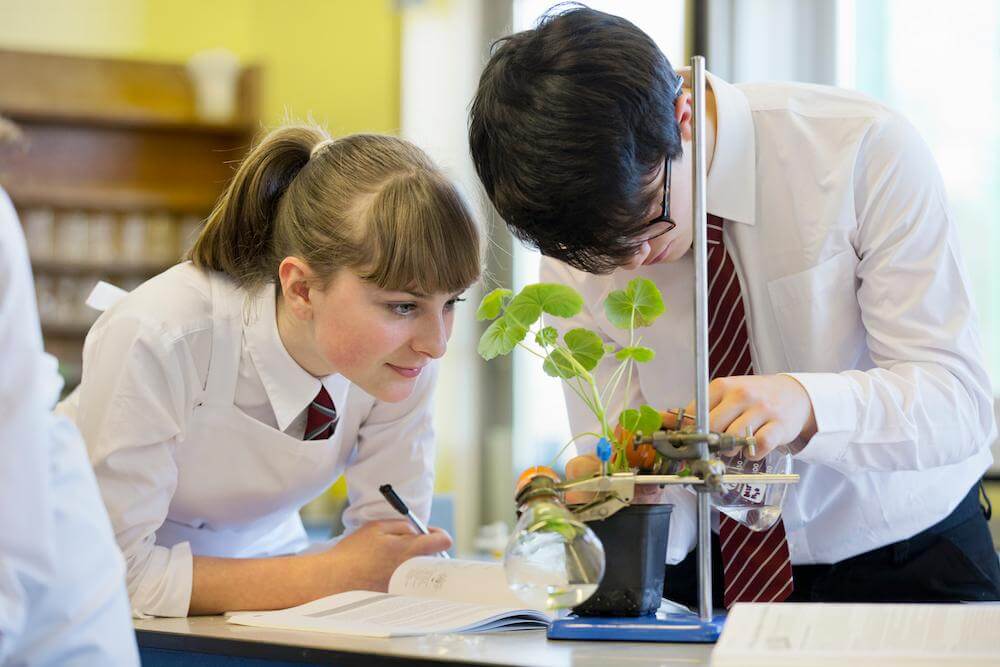
Science Encourages Creativity
Since Science is an ongoing thought process, it encourages students to ask questions, test, and try new things. Science also helps students see how experiments can fail or succeed—leading to learning about trial and error. Students learn that if something doesn’t work the first time, they can try it again. Giving them room to try new ideas and fail fosters creativity, inquiry, problem-solving, and resourcefulness. Science is unique because it typically starts with a question rather than a defined answer. Since answers are not discovered in black and white, students must experiment and research. All of these factors lead to growth and continuous creativity.
Science Can Foster a Love of Learning
One of the most critical things we can do in education is to exemplify our own love of learning. Through this topic, the love of learning should come natural because it is a subject that leaves room to question and test everything.
Science is also an intriguing topic because we are all born curious about the world around us. Science is inherently fun, engaging, and hands-on. Children, by nature, are interested in exploring everything they see. Because a great deal of Science is hands-on, children are naturally drawn to the topic.
No other subject can genuinely make a child notice and pep up like when they see a spectacular Science project or presentation. Science encourages a love for learning that can easily spill into other subject content areas at school.
Science Can Improve Critical-Thinking Skills
What is critical-thinking? Critical thinking is a reflective behavior that includes analytics, logic, rationality, and synthesis.
It also means students have to take a deeper dive and ask questions such as:
- Why is that so?
- Where is the evidence?
- How good is the evidence that I’m using?
- Is this a good argument based on the information I have?
- Is the information biased or verifiable?
- Are there any alternative explanations for this big question?
Critical thinking moves us beyond a mere definition and into the realms of scientific inference and reasoning. Having to ask these questions enables students to make discoveries and foster critical innovation.
For many scientists, critical thinking tends to become intuitive due to practice, research, and a growing wealth of experience.
Unfortunately, there is no way of teaching critical thinking – it must be experienced firsthand through processes and experiences. Critical thinking grows as students are exposed to various experiences in their lives. Teachers can nurture, encourage, and provide the right curriculum that leads to critical-thinking. Students must still experience it firsthand.
Science Fosters Innovation
In an education system that still focuses on standardized testing, staying aligned with best practices in how students learn Science can be challenging. However, forward-thinking teachers can make Science innovative.
Teachers who can create environments that help students think deeply, ask questions, act, and be scientists and engineers in their own right, bring forth the natural curiosity Science brings to the classroom. Effective Science teachers know how to use their students’ prior experiences to help students align with the real-world issues they face in their everyday lives. Science encourages students to learn according to their own interests.
The learning environment students are in should reflect the experiences and prior knowledge each student brings to the lesson, their connections, and the content learned.
Effective Science teachers use content that crosses into other subject areas and can guide students to demonstrate mastery of other content.
Science Builds Relationships—Especially for English Language Learners
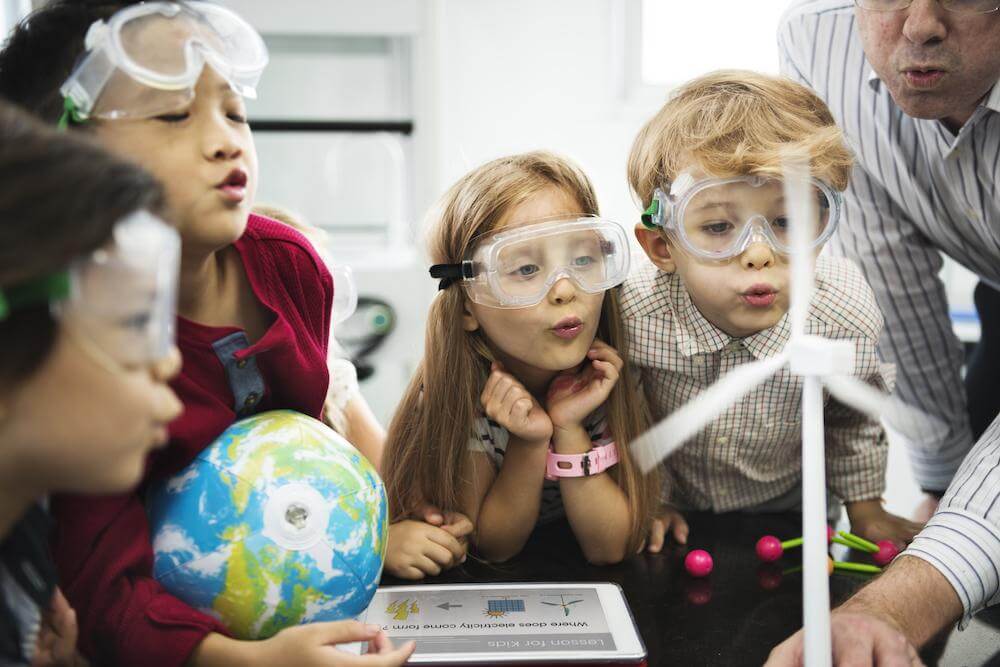
It is critical to remember that Science does not focus solely on memorization or does it work in silos—but rather on thoughts, questions, testing, hypotheses, and theories. We think about Science, test it, collaborate with other scientists, and continue to make discoveries—Science doesn’t solely focus on memorization.
Here are a few ways to teach Science to English Language Learners:
- For explanations, ESL teachers can use pictures, Venn diagrams, infographics, pie charts, and images to help teach key concepts. Music is another fascinating tool for teachers to use with ESL students. They can combine music, Science, and learning English all at the same time.
- Teachers should also provide real-world videos and opportunities that relate to students’ lives. ESL students can also learn about Science through engaging outlets such as videos, WebQuests, and virtual field trips. To reinforce the messages educators teach, it is essential to connect Science to the real world of your students. Hands-on activities should be in every Science curriculum. Students learn better when they participate in engaging activities. Teachers should offer safe experiments and pair ESL students with a compassionate native English speaker to ensure safety in the classroom.
- For most science-oriented vocabulary lessons, it is easy to teach Science if you have real-life things to see and touch. For example, if students are learning a topic related to outdoor insects, teachers can take students outside to help them discover the natural world in real-time. By seeing, feeling, touching, and communicating with peers, ESL students can grow their love for English and Science at the same time.
Other examples to bring ESL and Science together can include:
- Encouraging students to research habitats
- Creating scenarios through hands-on learning via shoebox dioramas
- Writing a song about an animal
- Presenting findings in a video for public sharing
My colleague, Tom Jekins, Albert Einstein Distinguished Educator Fellow says, “Learning science is invaluable because it provides our young people an opportunity to learn the ‘hows’ and ‘whys’ of our very dynamic world. If we also combine experiences that utilize the engineering design process then they will be equipped with the skills to apply this knowledge to create solutions that will benefit humanity (hopefully, the Earth’s plants and animals as well). If we ensure that all students have access to a quality STEM education, the world will become a much better place.”
To ensure all of your students are engaged, it is critical to teach Science through experience—not memorization.
